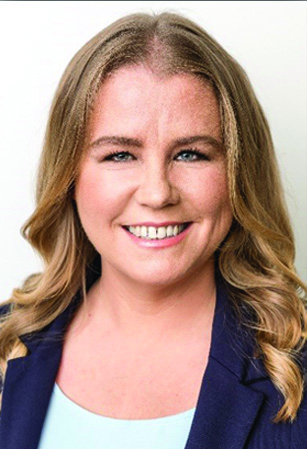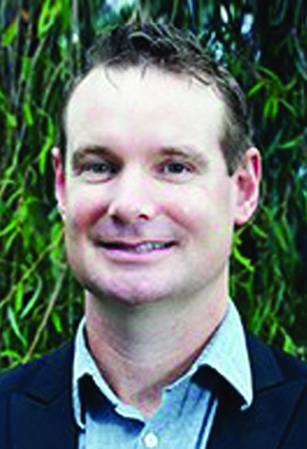The Neo-Vitalistic Lens
Neo-vitalistic thought accepts on an a priori basis that all living beings are self-conscious, self-healing and self-evolving. This understanding respects and embraces a systems approach to life, realizing that a change in one part of the system changes the entire system. These perspectives empower the individual, and the society, to marshal resources for healing and happiness on a new and intensified level. Neo-vitalism stands with science in offering a paradigm that encompasses a broader perspective of health and healing.
In this presentation Dr. Riekeman related how neo-vitalistic perspectives are consistent and congruent with emerging systems theory science and the traditional principles upon which the chiropractic paradigm was constructed. He contrasted 18th century French vitalistic concepts with 21st century neo-vitalistic perspectives illustrating the power of the contemporary model. This session will concluded with a discussion of real-world manifestations of neo-vitalistic thought at play in the health care environment of 2017.
Advances in Neuroscience, Parts 1 & 2
Drs. Haavik and Holt shared this presentation as well as the Part 2 presentation reviewing their research history and demonstrating the body of knowledge that has been amassed over the past 15 years and the implications of this research in the practice of chiropractors. Together they brought the latest in neuroscience research enriching the value and clinical utility of the chiropractic approach to health and well-being. This was a translational lecture having brought current basic science research findings to the adjusting table of the chiropractor for the benefit of his/her patient.
Advances in MRI Imaging; Image Guided Adjusting Technique, Part 1
Dr. Scott Rosa, a pioneer in the application of weight-bearing MRI technology involving phase-contrast imaging to assess cerebrospinal fluid (CSF) flow before and after upper cervical adjustment discussed his background and experience in applying these technologies in his practice using the Atlas Orthogonal (AO) upper cervical adjusting procedures. Dr. Rosa provided the rationale for the application of the MRI related approaches as well as an extensive series of images detailing the ability to observe altered CSF flow-before and after AO adjusting and the impact that these corrections have had on the patients involved.
The Chiropractic Continuum—Yesterday, Today and Tomorrow
Dr. Phil McMaster, president of the New Zealand College of Chiropractic, Auckland, New Zealand discussed the interface of foundational perspectives in chiropractic with the demands of the evidence-informed environment of health care in 2017. Dr. McMaster explored the process of expressing a chiropractic conceptual approach to health and well-being using the language, metaphors and framework of contemporary health care thought.
The Biology of Belief Revisited
Internally acclaimed author and lecturer, Dr. Bruce Lipton, revisited his now decade old first edition of The Biology of Belief. Dr. Lipton updated the audience on how his views have been reinforced and strengthened by the science that has emerged over the past decade. He brought together the perspectives of his first and second editions to illustrate the power of the individual to influence health, happiness and well-being in their life and in the lives of those around them.
European and North American Updates
The Rubicon Group was pleased to bring egional updates on the status of the profession, in particular the education environment, from Europe and North America. Drs. Christina Cunliffe and Adrian Wenban, of the McTimoney College of Chiropractic and the Barcelona College of Chiropractic respectively, briefed the attendees on the continued growth and expansion of the profession in Europe. A similar update was presented for North America by Drs. Edwin Cordero, president, Sherman College of Chiropractic and Dr. Guy Riekeman, president of Life University. This front-line update provided insight and perspective that will assist the profession in Austral-Asia in appreciating current trends and patterns of interest.
Epigenetics and the Chiropractor
Dr. Lipton, former University Wisconsin Medical School Associate Professor and Stanford University researcher, discussed the realities of gene controls relative to health and disease with an emphasis on the epigenetic factors that give humans the ability to alter gene expression. Dr. Lipton addresse epigenetic controls as powerful enabling mechanisms that can assist the patient and practitioner in escaping the perspective that people are a “victim of their genes” and therefore powerless to alter their impact. The understandings offered by Dr. Lipton of genetic mechanisms reflected his text, “Spontaneous Evolution” in the context of contemporary quantum physics principles as he contrasted them with Newtonian principles. A broader understanding of this information added new depth of awareness to the impact of how our thoughts, behaviors, habits and routines can be harnessed to heal or endured into deeper levels of dysfunction.
The Australian Chiropractic College-An Update
The Rubicon Group was pleased to welcome Dr. Pat Sim of Adelaide, South Australia, as a representative of the Australian Chiropractic College as he brought the member programs of The Rubicon Group and the attendees of the 2017 Rubicon Conference up to date on the latest developments in the emergence of the Australian Chiropractic College. This presentation focused on the curricular and programmatic elements that will serve to fill a need in chiropractic education in Australia that have heretofore remained unaddressed. Dr. Sim reviewed in detail the efforts related to collaboration with The Rubicon Group in general and the New Zealand College of Chiropractic in particular. The interface with the Australian Tertiary Education Quality Standards Agency (TEQSA) and the Council on Chiropractic Education Australasia were thoroughly discussed. Dr. Sim explored the needs of the Australian Chiropractic College and the opportunities for involvement on the part of the profession in Australia.
The Rubicon Group and You
In closing, the member institutions of The Rubicon Group, addressed their hopes and aspirations for the profession globally. The mission of The Rubicon Group was discussed in detail as the plans for the future were offered to the audience.









